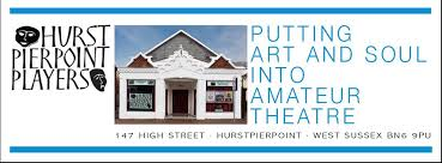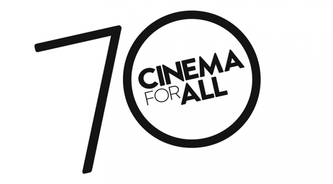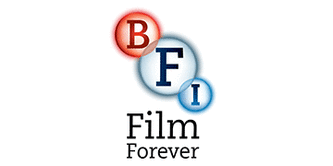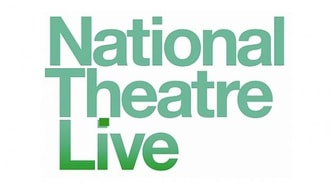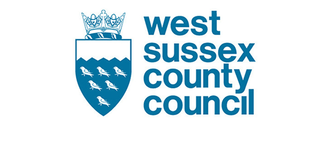|
|
Thursday 7 May
Doors: 7.30pm Film: 8pm By the Grace of God (15) Alexandre, a bastion of the French Catholic bourgeoisie and fervent church-goer, learns that Father Preynat, the priest who abused him when he was a Boy Scout, is still working with children. He decides to take action and is soon to be joined by two other victims of the priest, in a search for justice. That brilliantly impish provocateur, François Ozon, shows he can handle a deeply serious story with dignity and gravitas. Patient in its approach and stirring in its conviction, By the Grace of God draws soberly gripping cinema from real-life horror. |
|
Film review
Tim Robey The Daily Telegraph ★★★★★ It speaks to the range of France's never-predictable François Ozon that he can follow up the kinkiest, silliest film he's ever made – 2017’s crazed erotic thriller L’Amant double – with his most gut-wrenchingly serious. By the Grace of God is a scalding docudrama on a subject that has blazed its way with particular ferocity across the French media of late: the cover-up of child sex abuse by the Catholic Church. Ozon is better known as an impish provocateur jumping across genres and styles, with big stars such as Catherine Deneuve in tow – from the murder-mystery pastiche of 8 Women (2002) to the trophy-wife comedy of Potiche (2011). If there were ever any doubt that he was the man for this job, the career-topping urgency of his filmmaking sweeps it away inch by inch, sequence by methodical sequence. Without ever seeming unconsidered, it has a burning momentum that makes your heart pound. The film is a dramatisation of the real story of one priest, the now elderly Father Bernard Preynat (Bernard Verley), who abused dozens – maybe hundreds – of boys in Lyon. The first victim we meet is a family man called Alexandre (the superb Melvil Poupaud, an Ozon regular), who has buried his memories of being serially assaulted until deep into adulthood, and managed to raise five children unquestioningly into the Roman Catholic faith. He is driven, like many others, by seeing Père Preynat still at large – still teaching catechism to young boys, despite the warning flags that both Preynat himself, a self-confessed paedophile, and several families have waved at higher-ups over the years. (Preynat had told his superiors in the Church as well as parents that he “had a problem with children”.) Alexandre contacts the Archdiocese in writing, wanting to be heard, and earns an interview with Preynat, mediated by a well-meaning Church psychologist (Martine Erhel). Horrifyingly, this takes the form of a roles-reversed confessional – with all the facts admitted, but nothing recorded, no repentance asked for, and certainly none gained. In stepping up his case when Church authorities stall, Alexandre is hobbled by the statute of limitations on criminal offences. Until French legal reforms as recently as 2017, this was a mere 20 years. How quickly were these boys, some eight or nine when they were raped, meant to set aside their terrified shame and come forward? Alexandre’s own parents are portrayed as barely taking him seriously when he raised the issue at 17, and then decades later accuse him of muck-raking – as does the father of the profoundly traumatised Emmanuel (a riveting Swann Arlaud). Or they’re accused of craven attention-seeking, as François (Denis Menochet) is by his bitter older brother. More recent victims such as François do, however, have a chance of bringing the priest to justice. The real Preynat tried to block the film's February release in France, has since been defrocked by the Church’s ecclesiastical court, and now awaits a criminal trial. Lyon’s archbishop, Cardinal Philippe Barbarin (François Marthouret), has also offered his entirely appropriate resignation, although it has been rejected by the Pope. The film has caused needed shockwaves, in other words, without being anyone's idea of a campaigning screed. These men meet hostility from staunch Catholics, many within their families, but the point is trenchantly made that their grass-roots activism isn’t against the Church but ultimately for it. Who would worship within an institution that merely wrings its hands, sweeping paedophilia under the carpet? Ozon knits these complex, overlapping narratives into an enthralling tapestry of testimony, set to an organ-driven score by Evgueni and Sacha Galperine (Loveless) that gathers it up as a litany – something vital and long-awaited. For a relatively lengthy film, the pace is fast, focused, unrelenting. Boldest of all, he doesn’t push some idea of major solidarity among the victims, but probes beneath with brilliant subtlety at rifts and contradictions within the movement. It’s hard to imagine ever righting wrongs on this horrific scale, but in the face of such a jaw-dropping willful blindness, there's something desperately human about the fight to be seen. |
Director: François Ozon
Writer: François Ozon Cinematographer: Manuel Dacosse Starring: Melvil Poupaud, Denis Ménochet, Swann Arlaud Running time: 130 mins Other Reviews Rotten Tomatoes - 96% The Observer - ★★★★ Evening Standard - ★★★★ The Independent - ★★★★ The Financial Times - ★★★★ Little White Lies - ★★★★ |

